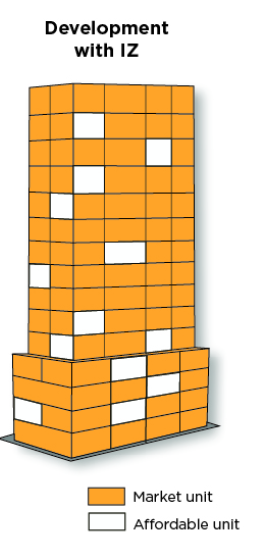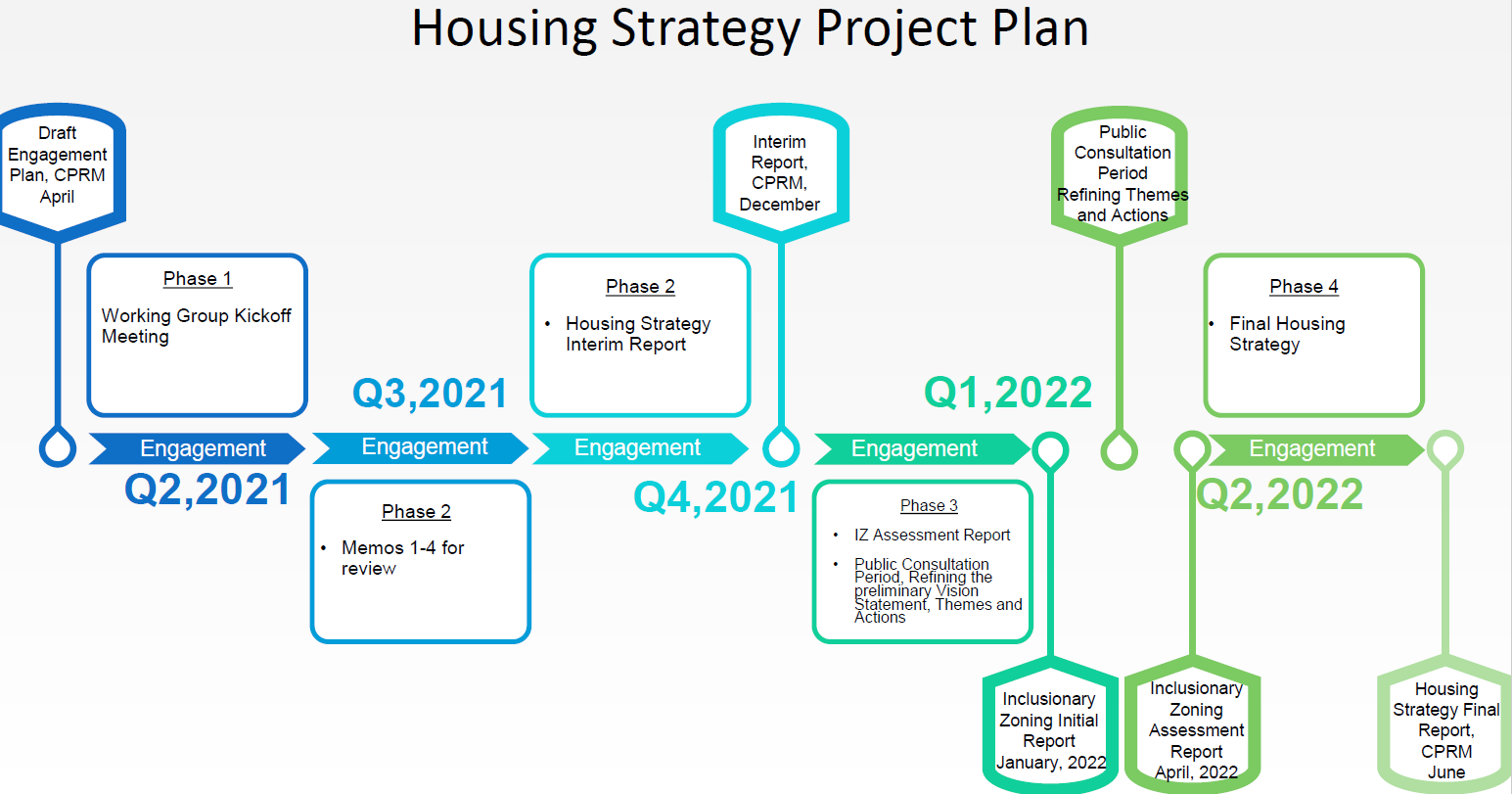 By Staff
By Staff
January 13th, 2020
BURLINGTON, ON
Burlington is going to hear a lot about Inclusionary Zoning. Most council members love the idea and the Mayor is going to make it a key plan in her re-election campaign. It might help if the public knew just what Inclusionary Zoning is.
What is Inclusionary Zoning?
Inclusionary zoning (IZ) is a policy tool available in many jurisdictions across Canada, the United States and beyond. Generally, Inclusionary Zoning is a policy tool that can be used to mandate or incentivize developers to provide affordable housing units. In Ontario, Inclusionary Zoning is a planning tool that enables municipalities to secure affordable housing units as prescribed in the Planning Act.
 Section 16(4) of the Planning Act contains express permission for municipalities to implement Inclusionary Zoning under the provisions as outlined in Section 35.2 of the Planning Act. These provisions have existed since 2016, when the Province of Ontario passed the Promoting Affordable Housing Act, 2016 (through Bill 7). Since then, there have been a number of legislative and policy changes that have impacted the implementation of Inclusionary Zoning.
Section 16(4) of the Planning Act contains express permission for municipalities to implement Inclusionary Zoning under the provisions as outlined in Section 35.2 of the Planning Act. These provisions have existed since 2016, when the Province of Ontario passed the Promoting Affordable Housing Act, 2016 (through Bill 7). Since then, there have been a number of legislative and policy changes that have impacted the implementation of Inclusionary Zoning.
The Provincial Regulation for Inclusionary Zoning (Regulation 232/18) outlines what the City must address in its Official Plan policies for Inclusionary Zoning and the information that must be included in the Municipal Assessment Report. The Municipal Assessment Report must include information related to housing need and demand and the potential impacts of inclusionary zoning on the housing market and on the financial viability of development. Provincial legislation requires that the City update this report every 5 years.
On September 3, 2019, the Province of Ontario made changes to the legislation for inclusionary zoning through Bill 108, More Homes, More Choice Act. Based on this legislative framework, the Planning Act restricts where in a municipality Inclusionary Zoning can be applied to Protected Major Transit Station Areas and areas where a Community Planning Permit System has been ordered by the Minister of Municipal Affairs and Housing.
Where can Inclusionary Zoning be Applied in Burlington?
In the City of Burlington, the Inclusionary Zoning policy tool can be applied in its three Protected Major Transit Station Areas (PMTSAs): Aldershot GO, Appleby Go and Burlington GO. These areas have been identified as PMTSAs through the approval of Regional Official Plan Amendment 48 by the Minister of Municipal Affairs and Housing and cannot be appealed.
Protected Major Transit Station Areas are a municipal tool that support higher order transit infrastructure around Major Transit Station Areas. The tool restricts appeals of certain required Official Plan policies and zoning such as transit-supportive densities and uses. The City of Burlington is now in the process of developing policies for these areas. Currently, the City of Burlington’s Housing Strategy project and MTSA project teams are working together to examine the use of Inclusionary Zoning in the Protected MTSAs. Should the findings of the Municipal Assessment Report determine that the use of the Inclusionary Zoning policy tool is feasible in one or more of Burlington’s PMS!’s the implementing Official Plan policies will be completed as part of the MTSA project by June 2022 with the Zoning Bylaw Amendments and other implementation strategies to follow at a later date.
Benefits and Limitations of Inclusionary Zoning
The primary benefit of Inclusionary Zoning is that it can contribute to the increased supply of housing that is affordable to a broader range of income levels while continuing to encourage market housing development by supporting a diverse range of housing supply to create a more inclusive, complete and equitable community. It also provides an opportunity to increase this supply without direct government funding.
The Inclusionary Zoning tool is limited in Ontario in that it can only be applied within PMTSAs where the Municipal Assessment Report demonstrates that the tool would be financially viable from a market perspective. The results of the Municipal Assessment Report could find that Inclusionary Zoning may not be an appropriate tool in one or all of Burlington’s PMTSAs from a market perspective; and may require phasing in over a longer period of time in order to account for and address market viability.
Further, there may be challenges regarding the resources required to implement and monitor the Inclusionary Zoning Official Plan and Zoning by-law policies as well as the management of the affordable units over the long term.




















Can whe conclude that all housing from now on created in Burlington that is say affordable, to Police officers, nurses, firefighters, accountants and laywersgood paying jobs. Will now only be available in the form of Highrise pigeon coups. Near culverts, railroad tracks, mall parking lots etc. Children get to play where exactly? In the Winter when it gets dark at 5pm? Oh yes in the hallways. Are no attempts being made to come up with more creative ways to provide housing that is more affordable in the low density areas. Such as duplexes, triplexes. Fourplexes? Somewhere were they have a small safe front and rear yard. This form of housing is common in most other Cities. The Official Plans of Burlington for the past 20 years have allowed semi-detached homes to be built City wide. The problem is the City has to provide the zoning by-laws no more than 3 years after an OP. Is created. This zoning should have been in place 17 years ago. The highrise builders sure didn’t have to wait 17 years for their by-laws to be put in place. The failure of the the Provincial Liberal and Conservatives for only catering to the large Developers and failing to enforce their own rules and override the authority of Mayors who disregard Provincial mandates because they know there will be no consequence.
This form of social engineering created By Wacko Environmentalists. Will change how people live forever. In Burlington that is, Other Cities welcome common sense housing.
I listened to the committee meeting discussing Inclusionary Zoning. The gentleman who delegated and answered questions was extremely knowledgeable and laid out not only the advantages but also discussed cities, mostly in the U.S, who had followed through with Inclusionary Zoning. There were problems with this legislation and to date was a dismal failure.
When questioned he answered truthfully that he had no idea of just how many units would be required in Burlington, but was more than willing to work with the city to get this information.
Many levels of government are necessary to make this happen, as well as developers who are willing to be part of inclusionary Zoning. There is also the issue that people purchasing units in these developments might resent that others are paying less than they are.
Who will actually pay for these units? Will they be rental units only that are not owned by them? If owned, how would the owner be prevented from turning around and selling these units at market value? Who decides who gets these units- could they be purchased by the developer?
It is years ways from Inclusionary zoning actually being acted upon and perhaps be a successful alternative for affordable housing.
I realize that there are many who could benefit from more affordable housing, I just question if this is the way to go.
When I was growing up my parents could not afford to purchase a home, we lived in rental apartments and there were many other families in the same position. Owning a home is not a right. Perhaps rental units where the government provided a subsidy to allow people to pay market value rent is a more realistic approach.
I guess Inclusionary Zoning sounds like a great issue to campaign on, as saving the waterfront, or stopping high-rise development is no longer a viable segue to winning an election.
I would love to see a group start up as a FACT CHECKING organization prior to election campaigning so that residents can make an educated voting decision. Any volunteers?
Why wait for, or expect someone else to do it. Seems you have the time and the desire, so go to it. We await with interest.